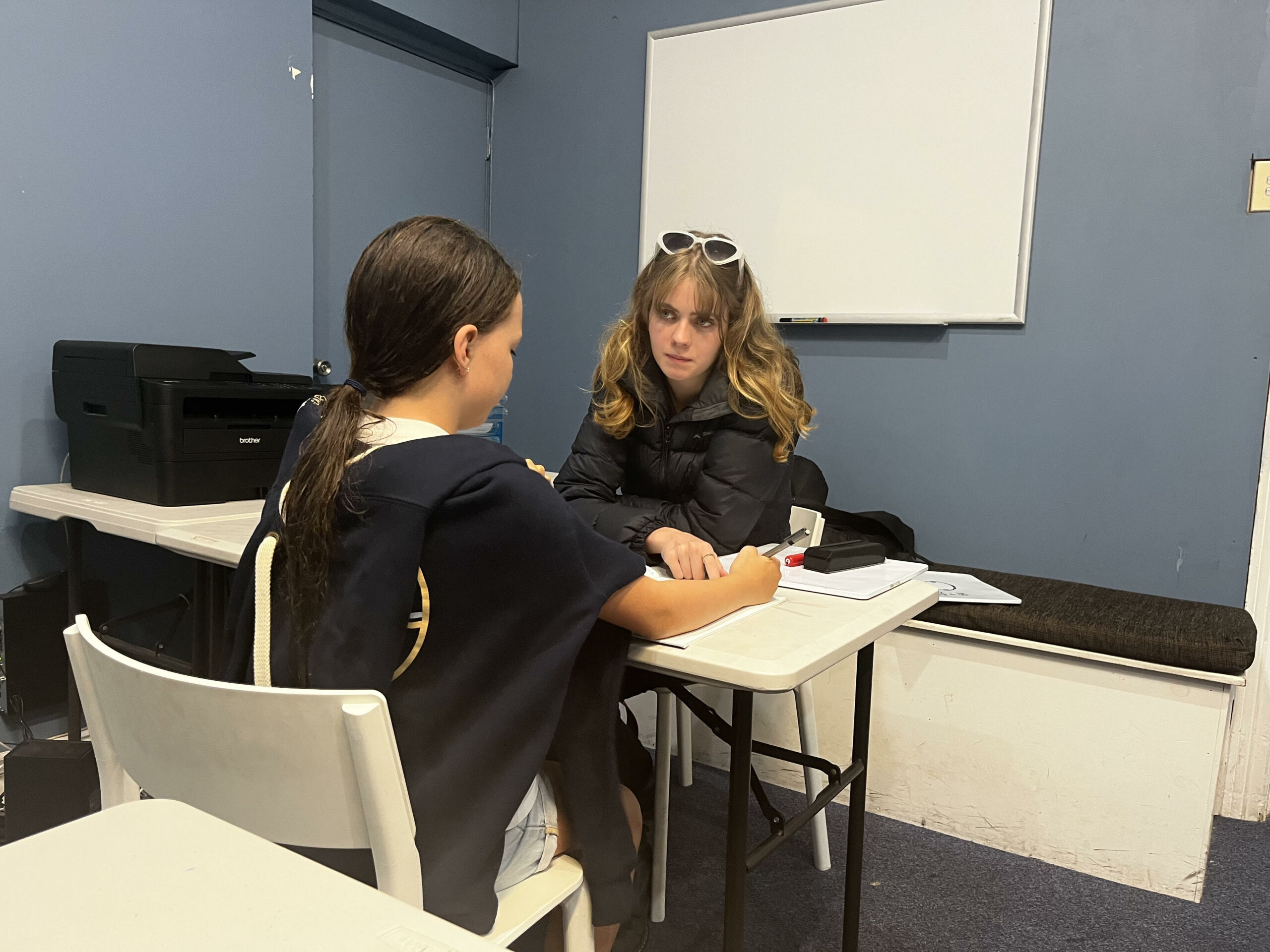
I was fortunate to be able to do an observation of Thea with two of her students – the older one just finishing up, being tutored in English. And the second one was much younger, in Mathematics. Both lessons provided great insight into the nature of learning as a whole, and was invaluable to my journey as a tutor.
She firstly discussed creative writing techniques with her older student – persuasive, discursive, etc. It was interesting to hear what she had to say, especially coming from a person that is more mathematically-minded, and studies a lot of mathematics for their degree. She discussed the ‘general approaches’ to types of creative writing – about how you learn to follow a general formula for a type of writing, and as your techniques, texts and themes become more complex, you learn to subvert this ‘formula’ to suit your needs. It could be the finals season brain fry getting to me, but my mind immediately drew parallels to the approaches mathematicians go to when solving differential equations – solving each ‘type’ presents the general form for a particular solution, and often times you need to be flexible and creative with your mathematics (following all the intuitive laws, of course). This I think made me realise that education is a creative process – fluid, dynamic, and always changing, much like the way our brains take in and process information.
With her second student, they delved into fractions. There was a lot of casual anecdotal conversation – relevant or tangential to the topic matter, of course, but back and forth nonetheless. It helped to provide strong engagement for her student, and maybe keep things fun. Her approach was very visual, representing particular fractions as split sectors of pie charts, allowing her student to colour in the correct fraction. I feel this approach was extremely effective for her student, and a big takeaway for me. I can remember when this stuff was a lot less intuitive for me – especially seeing as I’m almost suffocated by esoteric new mathematical ideas constantly for my engineering degree. I feel that I can really incorporate these kinds of visual strategies for my tutoring when it comes to younger students, especially when it comes to keeping things lighthearted. It is a definite reflection of Thea’s strong ability to tutor, and reinforces the idea that education is an inherently creative process (regardless of whether or not you’re bad at English like me!).
Thanks Thea!
Zac Markovina

